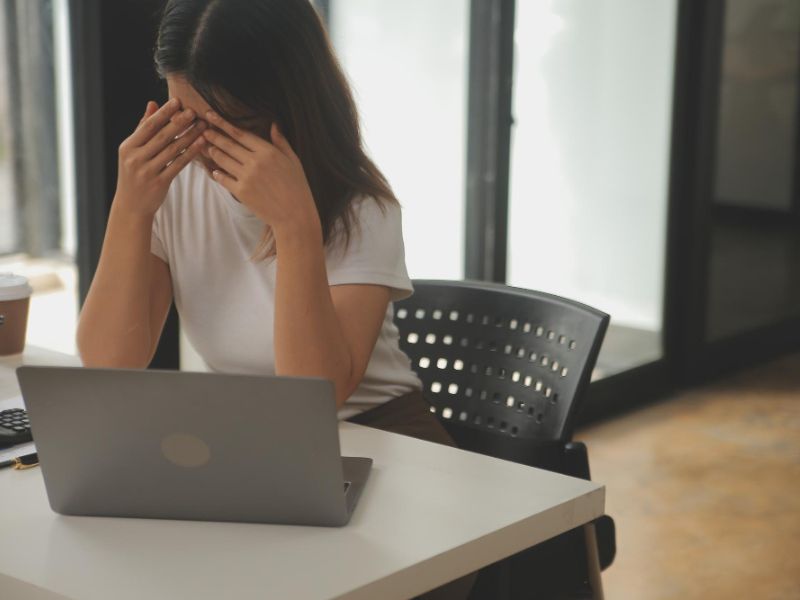 Roughly defined, a company’s culture embodies the personality of the business – this affects everything from how staff behave and interact with each other to how they work together and even the hours they work.
Roughly defined, a company’s culture embodies the personality of the business – this affects everything from how staff behave and interact with each other to how they work together and even the hours they work.
And of course, there is a direct impact on employee wellbeing. How would you describe the culture at your company? Stressful, outdated, biased? Or happy, progressive, inclusive? What influence is this having on your health, and how can you mitigate the negative effects?
Whatever job you’re in, there is no escaping the ‘always on’ culture that pervades our society in general. Our love affair with technology and responding reactively to 24/7 demand has played a crucial role in depleting our mental and physical health – including the immune system. Working patterns have become even more linear (go, go, go and then stop), so the need to be mindful of our own wellbeing is increasingly important.
With soaring numbers of staff working from home this year, there is a unique opportunity to take charge of your wellbeing and design your own healthy microculture from your home office. We don’t know how long flexible office hours are going to be in place, but if there are no negative effects on productivity, the argument against becomes weaker as time goes on.
One of the simplest and most effective ways to alleviate a high-stress company culture is to build rest into your working day. Every 60-90mins, in line with your body’s natural circadian rhythms, seek recovery even for just 5-10 minutes. Do something different from what you were just doing. Stretch your neck and shoulders, take a few conscious deep breaths, drink a glass of water, get some fresh air, go for a short walk, get away from your desk and screens. This will help you feel more energised throughout the day and also encourage your body to sleep better at night.
There are also indications that working from home has had a welcome effect on inclusivity. Recent research from the Hays Diversity & Inclusion 2020 Report reveals that almost a third (29 per cent) of respondents believed COVID-19 had positively shaped their organisation’s equality, diversity and inclusion agenda.
Of course, anyone who has experienced othering – the often-invisible, but sometimes blatant, mechanism restricting people outside the dominant culture – will be all too aware that it will take a lot more than a few months of flexible working to remedy a biased company culture. Yet there is hope at least that things are moving in the right direction.
Ultimately, if your company’s culture is inherently toxic, there is only so much you can do to protect your wellbeing. You must decide whether or not you will stay in that environment.
If, on the other hand, you want to take steps to safeguard your health in a stressful work environment, there are things you can do to avoid burnout.
Symptoms of burnout to watch you for include: feeling more irritable, anxious and pressurised, sometimes for no obvious reason; fearful of making mistakes; working longer (but less productively) to stay in control; inability to relax; loss of good lifestyle habits, combined with poor eating patterns, and overindulgence in caffeine/ alcohol/ smoking; becoming demotivated; reduced self-confidence, self-doubt, and sleep loss.
Here are some things you can do to protect your wellbeing:
- Create your own professional networks (digital or otherwise) to check information, offer moral support and help spot opportunities.
- Take advantage of training opportunities inside and outside your organisation. Think about not only technical skills but interpersonal flexibility, presentation and time management skills, and personal development.
- Ensure your lifestyle maintains fitness and positive beliefs about yourself. This includes exercise, good eating habits, good sleep hygiene, development of good social support and maintenance of solid work/home boundaries, prioritise developing a healthier relationship with technology and literally, switching off.
- Plan: be your own manager – try giving yourself feedback and working out contingency plans.
Most importantly, develop interpersonal flexibility. Those who can seek support when you need it, be assertive, negotiate on their own behalf, are able to resist excessive demands on their time, can generate enthusiasm and loyalty in their team, and who can create their own support networks – these people cope more effectively than people whose interpersonal skills are more restricted.
 About the author
About the author
Dr Nerina Ramlakhan has worked as a professional physiologist and sleep therapist for 25 years. She worked for a decade conducting sleep and wellness programmes at Nightingale Hospital in London, coaches on burnout prevention at Ashridge Business School and is the original founder of BUPA’s Corporate Wellbeing Solutions. Nerina works with individuals as well as numerous corporate clients from various industries including sport (Chelsea Football Club) and hosts a regular sleep programme at Vale De Moses yoga retreat, Portugal. Nerina is author of Tired But Wired (Souvenir Press, 2010), Fast Asleep, Wide Awake (Thorsons, 2016), and The Little Book of Sleep: The Art of Natural Sleep (Gaia, 2018)
WeAreTheCity covers the latest female centric news stories from around the world, focusing on women in business, careers and current affairs. You can find all the latest gender news here.
Don’t forget, you can also follow us via our social media channels for the latest up-to-date gender news. Click to follow us on Twitter, Facebook, Instagram, and YouTube.








